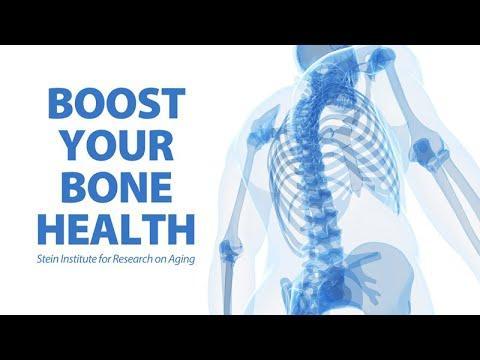The following content is messaging from the advertiser and does not reflect the views of Everyday Health. Man with Epilepsy Reaches New Peaks Tom marvels at his son John’s determination every time they go climbing together. For John, 35, mountain climbing provides “sanctuary” – and a chance to set aside the challenges he faces living with autism as well as epilepsy, a disorder of the brain that causes seizures. 1 John’s passion for the outdoors was ignited during family hikes when he was four years old – a year before he was diagnosed with epilepsy. Despite undergoing surgery and taking daily medication, he still experiences seizures, which often occur in clusters (also known as acute repetitive seizures or episodes of frequent seizures). 2 Epilepsy is a condition that impacts about 3.4 million people in the U.S.1 John is one of many people living with uncontrolled epilepsy who also experiences seizure clusters 3 , which are marked by periods of increased seizure activity – which can be defined as two or more seizures in a 24-hour period. 2 The number, type, severity, and duration of seizure clusters vary from person to person. 4 They can happen without warning and have serious consequences 5 ; according to various studies, untreated seizure clusters can increase the risk of physical injuries, hospitalization, and seizures lasting longer than five minutes (status epilepticus). 6,7,8,9 Triggers like stress, lack of sleep, illness, or menstrual cycles can lead to increased seizures, and so can changing or forgetting to take your daily seizure medication. 10 Tom is extremely supportive of John’s outdoor ventures, but his epilepsy and potential for seizures have always been a cause for concern, given the high risk involved in these activities. When John was prescribed NAYZILAM ® (midazolam) nasal spray, CIV, a rescue medication for seizure clusters 11 , Tom felt some peace of mind when his son was on the mountain. NAYZILAM is a prescription medicine used for the short-term treatment of seizure clusters. It can be used for appropriate people with epilepsy 12 years of age and older. 11 NAYZILAM has a Boxed Warning for concomitant use with opioids; abuse, misuse, and addiction; and dependence and withdrawal reactions. 11 The most common adverse reactions (=5% in any NAYZILAM treatment group) were somnolence, headache, nasal discomfort, throat irritation, and rhinorrhea. 11 Midazolam is associated with a high incidence of partial or complete impairment of recall for the next several hours. 11 “We’ve always believed and have told John that he shouldn’t worry and should live his life,” says Tom. “We have full clearance from his epileptologist and primary care doctor to climb. They feel the same way we do; there’s no way any of us are going to put the brakes on John and keep him from something he loves.” So far, John has summited 35 peaks over 14,000 feet, including 13 epilepsy awareness group climbs. This summer, the father-son duo is planning to conquer a 14,000-foot Colorado peak and will kick off training during National Epilepsy Week in May. Stopping seizure clusters quickly No one can predict when a seizure can happen, which is why Tom brings NAYZILAM, a fast-acting rescue medication, wherever he and John go, whether that is to a mountain or to the market. John continues to take his daily seizure medication, as directed, and uses NAYZILAM as a rescue-medication as needed. Designed as a single-use treatment, NAYZILAM can be given during or immediately after the first seizure if a cluster occurs, even if the person is unconscious – no inhaling necessary. 11 The approval of NAYZILAM was based on a placebo-controlled trial, with a primary efficacy endpoint of treatment success, defined by 2 components: seizure termination within 10 minutes and no seizure recurrence within 6 hours. 11 The majority of patients taking NAYZILAM achieved treatment success, with 81% of patients reporting seizure termination within 10 minutes. 11 NAYZILAM also helped patients return to whatever they were doing before the cluster and 58% of patients had no seizure recurrence between 10 minutes and 6 hours after the initial dose of study drug. 12,13 Additionally, patients treated with NAYZILAM had a greater probability of not experiencing more seizures for 24 hours after treatment with NAYZILAM compared with placebo. 11,12 ,13 “The first time we used NAYZILAM, my wife and I were home with John,” Tom reflects. “John was back to his normal self in a little over an hour.” * Living life with confidence Before a climb, Tom explains what John’s seizures look like to whomever accompanies them, as well as how to properly administer the medication. Having this as part of a seizure action plan, especially during John’s outdoor excursions, provides additional peace of mind. “I feel confident that others can give him NAYZILAM if necessary,” says Tom. It’s been a long journey to find treatments that work for John. Coordinating closely with a physician to find the right treatment can allow people with epilepsy and their caregivers, like John and Tom, to be prepared so they can respond quickly in the event of a seizure emergency. Thus, it potentially gives more moments that matter to them. “We’re really looking forward to more climbs this summer,” says Tom. “Our climb in Colorado will be our 13 th epilepsy awareness climb in that state. If we’re lucky, we may hit four mountains this summer.” To learn more about NAYZILAM, visit NAYZILAM.com or call UCBCares ® at 1-844-599-2273. Important Safety Information you should know about NAYZILAM® (midazolam) nasal spray, CIV What is the most important information I should know about NAYZILAM? NAYZILAM is a benzodiazepine medicine. Taking benzodiazepines with opioid medicines, alcohol, or other central nervous system (CNS) depressants (including street drugs) can cause severe drowsiness, breathing problems (respiratory depression), coma, and death. Get emergency medical help right away if any of the following happens: shallow or slowed breathing breathing stops (which may lead to the heart stopping) excessive sleepiness (sedation) Do not drive or operate heavy machinery until you know how taking NAYZILAM with opioids may affect you. Risk of abuse, misuse, and addiction. There is a risk of abuse, misuse, and addiction with benzodiazepines, including NAYZILAM, which can lead to overdose and serious side effects including coma and death. Serious side effects including coma and death have happened in people who have abused or misused benzodiazepines, including midazolam (the active ingredient in NAYZILAM). These serious side effects may also include delirium, paranoia, suicidal thoughts or actions, seizures, and difficulty breathing. Call your healthcare provider or go to the nearest hospital emergency room right away if you have any of these serious side effects. You can develop an addiction even if you use NAYZILAM as prescribed by your healthcare provider. Use NAYZILAM exactly as your healthcare provider prescribed. Do not share your NAYZILAM with other people. Keep NAYZILAM in a safe place and away from children. Physical Dependence and withdrawal reactions. Benzodiazepines, including NAYZILAM can cause physical dependence and withdrawal reactions, especially if you continue to use NAYZILAM daily. NAYZILAM is not intended for daily use. Do not suddenly stop using NAYZILAM without talking to your healthcare provider. Stopping NAYZILAM suddenly can cause serious and life-threatening side effects, including, unusual movements, responses, or expressions, seizures, sudden and severe mental or nervous system changes, depression, seeing or hearing things that others do not see or hear, an extreme increase in activity or talking, losing touch with reality, and suicidal thoughts or actions. Call your healthcare provider or go to the nearest hospital emergency room right away if you have any of these symptoms. Some people who suddenly stop benzodiazepines have symptoms that can last for several weeks to more than 12 months , including, anxiety, trouble remembering, learning, or concentrating, depression, problems sleeping, feeling like insects are crawling under your skin, weakness, shaking, muscle twitching, burning or prickling feeling in your hands, arms, legs or feet, and ringing in your ears. Physical dependence is not the same as drug addiction. Your healthcare provider can tell you more about the differences between physical dependence and drug addiction. Do not use more NAYZILAM than prescribed or use NAYZILAM more often than prescribed. NAYZILAM can make you sleepy or dizzy and can slow your thinking and motor skills. Do not drive, operate heavy machinery, or do other dangerous activities until you know how NAYZILAM affects you. Do not drink alcohol or take other drugs that may make you sleepy or dizzy while using NAYZILAM without first talking to your healthcare provider. When taken with alcohol or drugs that cause sleepiness or dizziness, NAYZILAM may make your sleepiness or dizziness worse. Like other antiepileptic medicines, NAYZILAM may cause suicidal thoughts or actions in a very small number of people, about 1 in 500. Call a healthcare provider right away if you have any of these symptoms, especially if they are new, worse, or worry you: thoughts about suicide or dying feeling agitated or restless acting aggressive, being angry, or violent attempts to commit suicide panic attacks acting on dangerous impulses new or worse depression trouble sleeping (insomnia) an extreme increase in activity and talking (mania) new or worse anxiety new or worse irritability other unusual changes in behavior or mood How can I watch for early symptoms of suicidal thoughts or actions? Pay attention to any changes, especially sudden changes in mood, behaviors, thoughts, or feelings. Keep all follow-up visits with your healthcare provider as scheduled. Call your healthcare provider between visits as needed, especially if you are worried about symptoms. Suicidal thoughts or actions can be caused by things other than medicines. If you have suicidal thoughts or actions, your healthcare provider may check for other causes. What is NAYZILAM? NAYZILAM is a prescription medicine used for the short-term treatment of seizure clusters (also known as “acute repetitive seizures”) in patients 12 years of age and older. NAYZILAM is a federally controlled substance (CIV) because it contains midazolam that can be abused or lead to dependence. Keep NAYZILAM in a safe place to prevent misuse and abuse. Selling or giving away NAYZILAM may harm others and is against the law. Tell your healthcare provider if you have abused or been dependent on alcohol, prescription drugs, or street drugs. It is not known if NAYZILAM is safe and effective in children under 12 years of age. Do not use NAYZILAM if you: are allergic to midazolam. have an eye problem called acute narrow-angle glaucoma. Before you use NAYZILAM, tell your healthcare provider about all your medical conditions, including if you: have a history of depression, mood problems or suicidal thoughts or behavior. have asthma, emphysema, bronchitis, chronic obstructive pulmonary disease, or other breathing problems. have kidney or liver problems. have congestive heart failure. have a history of drug or alcohol abuse are pregnant or plan to become pregnant. Taking NAYZILAM late in pregnancy may cause your baby to have symptoms of sedation (breathing problems, sluggishness, low muscle tone), and/or withdrawal symptoms (jitteriness, irritability, restlessness, shaking, excessive crying, feeding problems). are breastfeeding or plan to breastfeed. Breastfeeding during treatment with NAYZILAM may cause your baby to have sleepiness, feeding problems, and decreased weight gain. Tell your healthcare provider about all the medicines you take, including prescription and over-the-counter medicines, vitamins and herbal supplements. How should I use NAYZILAM? Use NAYZILAM in the nose only. Use NAYZILAM exactly as your healthcare provider tells you to use it and follow the Instructions for Use. Your healthcare provider has prescribed NAYZILAM to treat a type of seizure called a “seizure cluster”. If the seizure cluster is continuing 10 minutes after the first dose of NAYZILAM, a second dose of NAYZILAM may be used if you have been told to do so by your healthcare provider . If a second dose of NAYZILAM is used, give the second dose in the other nostril. Do not give more than 2 doses of NAYZILAM to treat a seizure cluster. If the seizures do not stop after NAYZILAM is used, get emergency medical help right away. Do not use NAYZILAM for more than 1 seizure cluster episode every 3 days. Do not use NAYZILAM for more than 5 seizure cluster episodes per month. If benzodiazepines are stopped after a person takes them daily, they can cause withdrawal symptoms. Stopping benzodiazepines suddenly can cause seizures that will not stop (status epilepticus), hearing or seeing things that are not there (hallucinations), shaking, nervousness, and stomach and muscle cramps. NAYZILAM is not intended to be used daily. If you use too much NAYZILAM, call your healthcare provider or go to the nearest emergency room right away. What should I avoid while using NAYZILAM? What are the possible side effects of NAYZILAM? What should I avoid while using NAYZILAM? See “What is the most important information I should know about NAYZILAM?” What are the possible side effects of NAYZILAM? NAYZILAM may cause serious side effects, including: See “ What is the most important information I should know about NAYZILAM?” Increase in eye pressure in people with acute narrow-angle glaucoma . See “ Do not use NAYZILAM if you: ” The most common side effects of NAYZILAM include: The most common side effects of NAYZILAM include: Sleepiness headache runny nose nasal discomfort throat irritation These are not all the possible side effects of NAYZILAM. Call your doctor for medical advice about side effects. You may report side effects to FDA at 1-800-FDA-1088. Please see additional patient information in the Medication Guide. This information does not take the place of talking with your healthcare provider about your condition or your treatment. For more information, go to www.NAYZILAM.com or call UCBCares ® at 1-844-599-2273. * John is sharing his experience using the product. Patient experiences may vary. References 1 Zack MM, Kobau R. National and state estimates of the numbers of adults and children with active epilepsy — United States, 2015. MMWR. 2017;66:821–825. DOI: 10.15585/mmwr.mm6631a1. 2 Jafarpour S, Hirsch LJ, Gaínza-Lein M, Kellinghaus C, Detyniecki K. Seizure cluster: definition, prevalence, consequences, and management. [published online May 21, 2018]. Seizure. doi:10.1016/j.seizure.2018.05.013 3 Chen B, Choi H, Hirsch L, Katz A, Legge L, Wong R, Jiang A, Kato K, Buchsbaum R, Detyniecki K. Prevalence and risk factors of seizure clusters in adult patients with epilepsy. Epilepsy Research. 2017;133: 98-102. 4 Bauman K, Devinsky O. Seizure Clusters: Morbidity and Mortality. Front Neurol. 2021 Feb 16;12:636045. doi: 10.3389/fneur.2021.636045. PMID: 33664705; PMCID: PMC7920959. 5 McKee, H., Abou-Khalil, B. Outpatient pharmacotherapy and modes of administration for acute repetitive and prolonged seizures. CNS Drugs. 2015;29(1):55-70. doi: 10.1007/s40263-014-0219-6. 6 Penovich PE, Buelow J, Steinberg K, Sirven J, Wheless J. Burden of seizure clusters on patients with epilepsy and caregivers: survey of patient, caregiver, and clinician perspectives. Neurologist. 2017;22(6):207-214. 7 Buck D., Baker G., Jacoby A., Smith D., Chadwick D. Patients’ Experiences of Injury as a Result of Epilepsy. Epilepsia. 1997; 38(4):439-44. doi: 10.1111/j.1528-1157.1997.tb01733.x. 8 Haut S., Shinnar S., Moshe S. Seizure clustering: risks and outcomes. Epilepsia. 2005 46(1):146-9. doi: 10.1111/j.0013-9580.2005.29004.x. 9 Cereghino J. Identification and treatment of acute repetitive seizures in children and adults. Curr Treat Options Neurol. 2007 9(4):249-55. doi: 10.1007/s11940-007-0011-8. 10 Fisher RS, Bartfield E, Cramer JA. Use of an online epilepsy diary to characterize repetitive seizures. Epilepsy Behav. 2015;47:66-71. 11 NAYZILAM ® (midazolam) nasal spray CIV. US Prescribing Information. 12 Detyniecki K, Van Ess PJ, Sequeira DJ, et al. Safety and efficacy of midazolam nasal spray in the outpatient treatment of patients with seizure clusters—a randomized, double-blind, placebo-controlled trial. Epilepsia. 2019;60:1797-1808. 13 UCB, Data on File. Proximagen, P261-401 Table 14.2.3.2.1. NAYZILAM ® and UCBCares ® are registered trademarks of the UCB Group of Companies. ©2023 UCB, Inc., Smyrna, GA 30080. All rights reserved. US-P-NZ-SC-2300101 Everyday Health does not endorse any specific product, service, or treatment.
This content was originally published here.




















